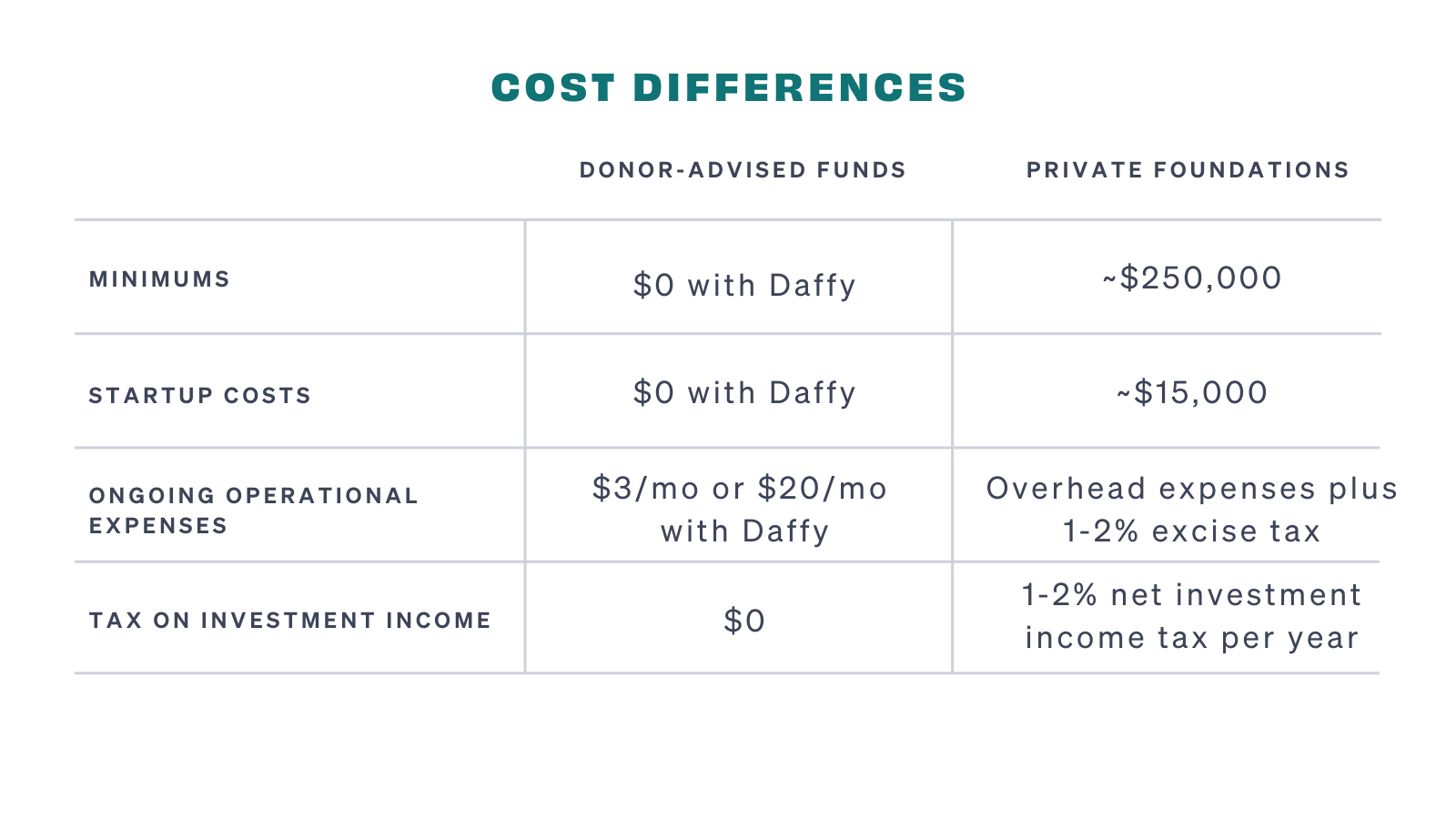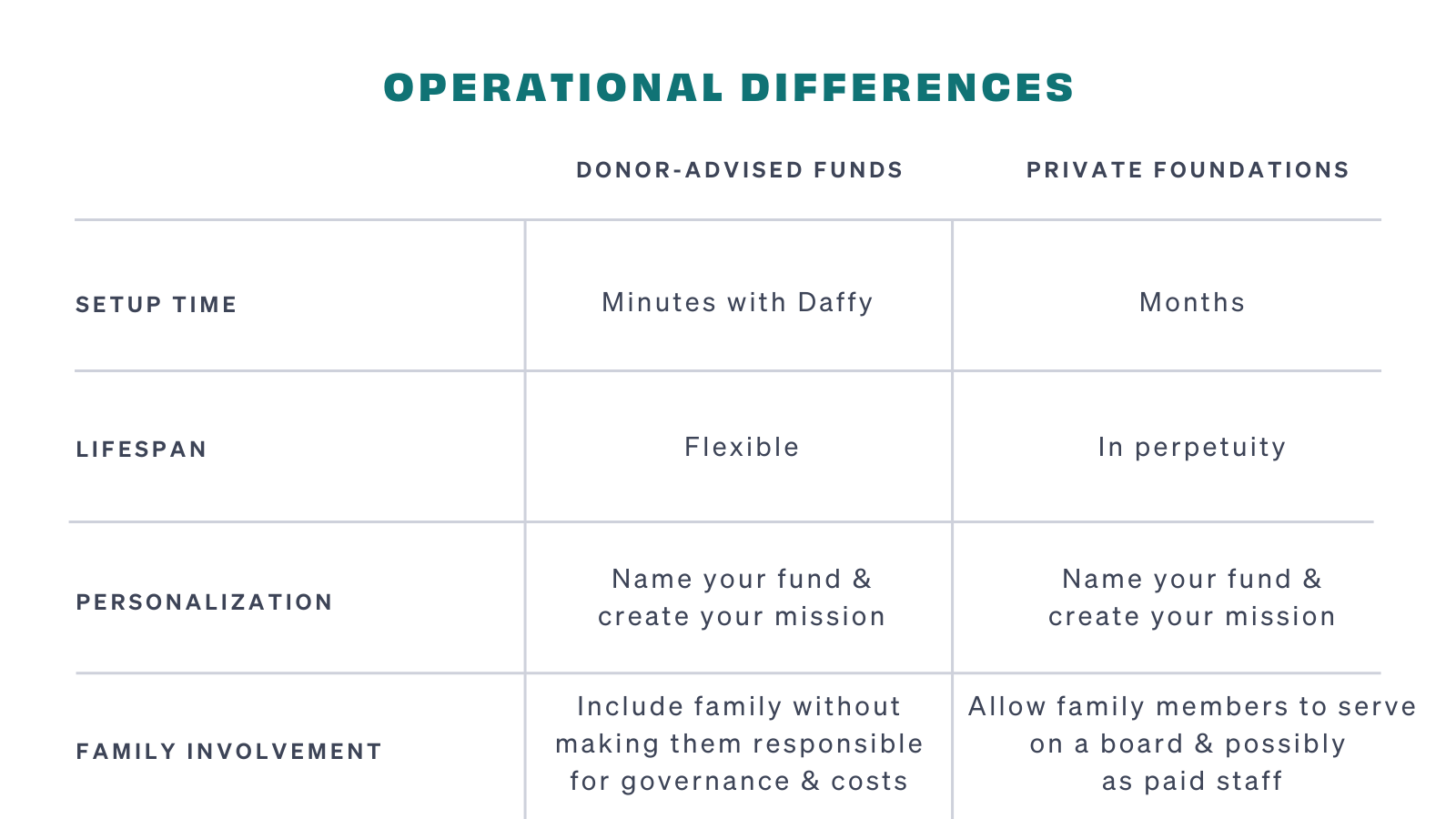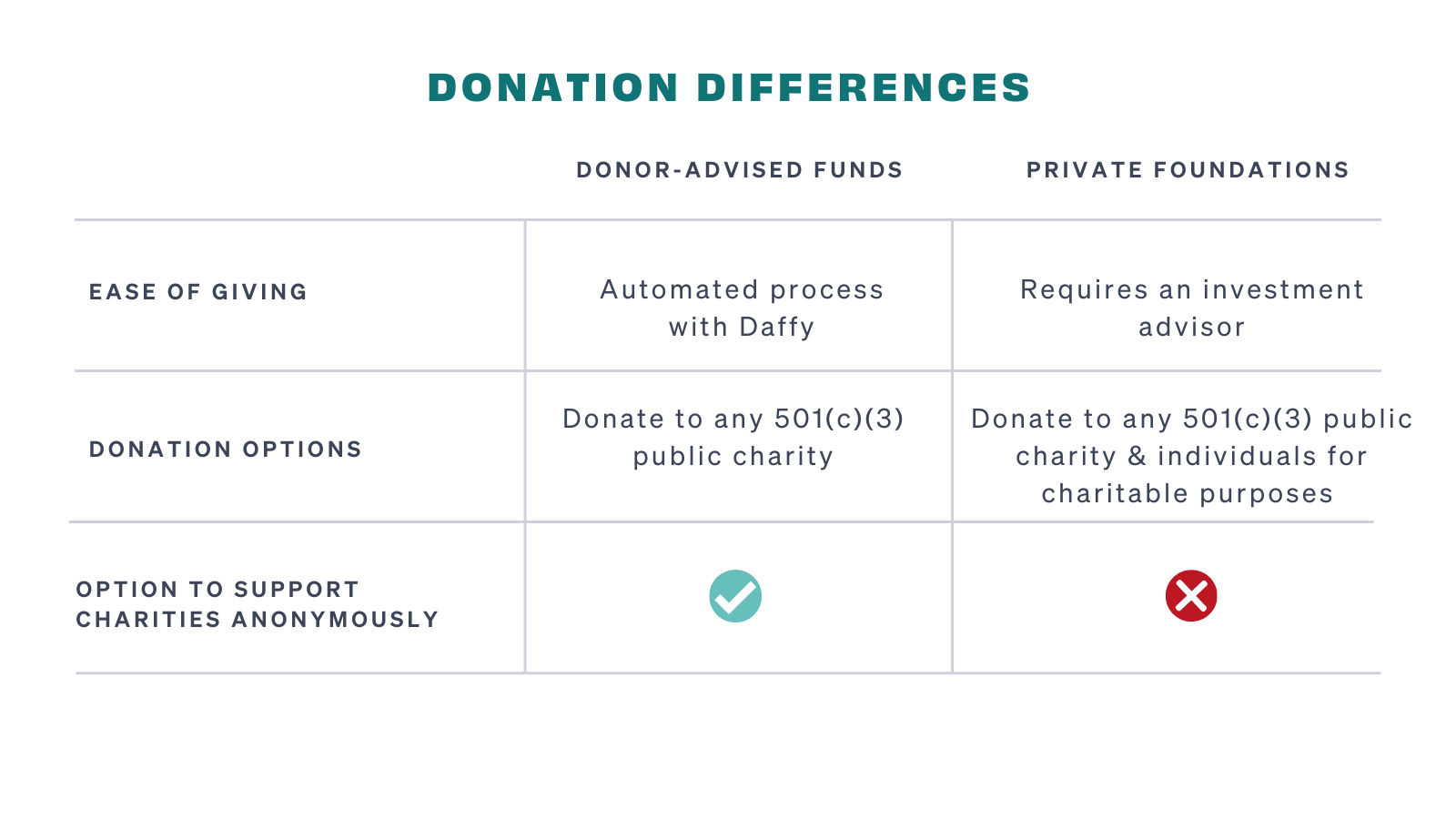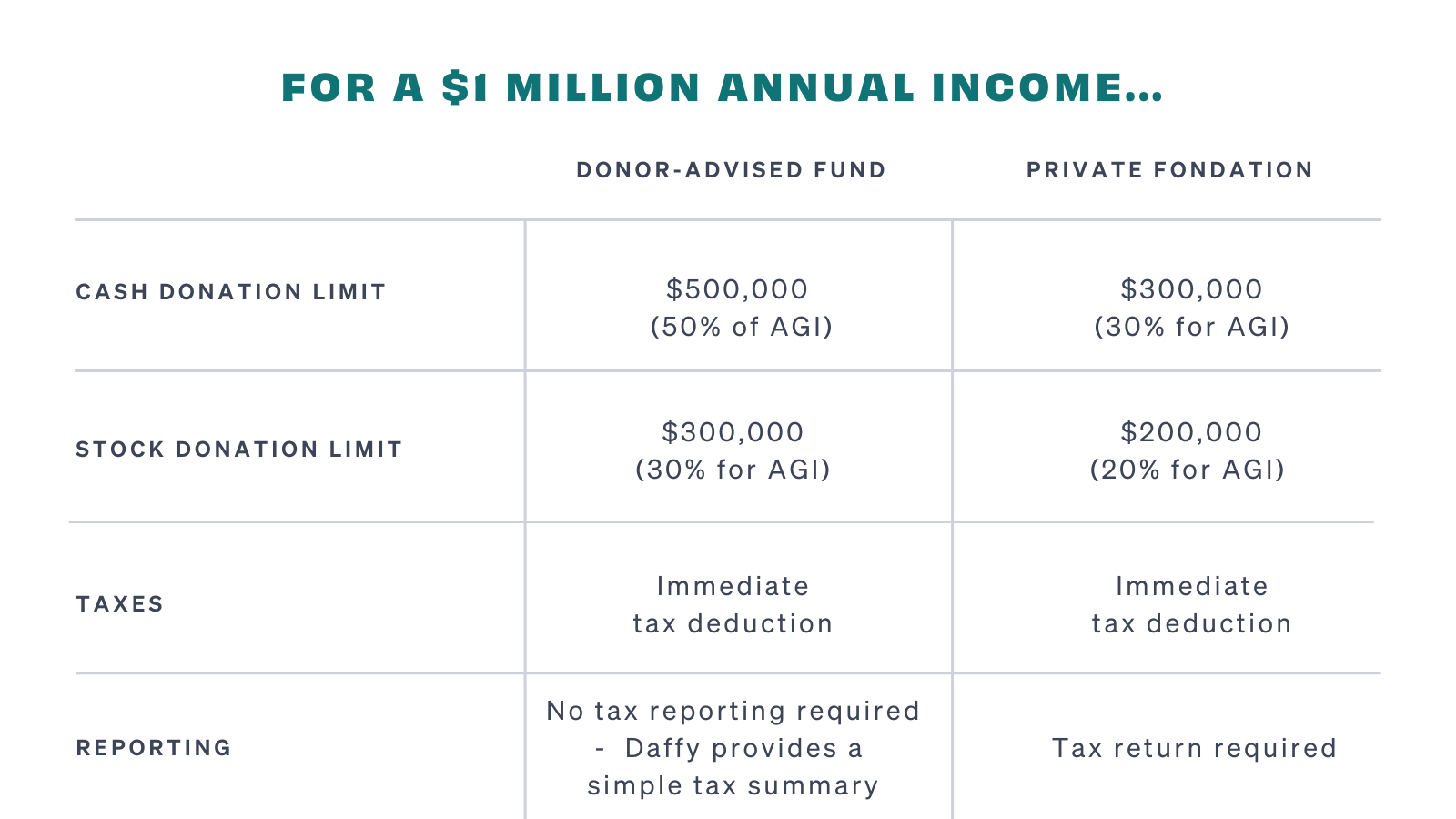As you grow your wealth, it becomes easier to designate a larger portion of your funds to charitable causes that are important to you. When you make donations, you may also be eligible to deduct those contributions from your taxable income, lowering your overall tax bill. Many people consider two distinct giving vehicles to make donations: donor-advised funds (DAFs) and private foundations.
While both options offer the potential for tax savings, there are several major differences between the two. If you’re giving less than $1 million per year to charity, you should strongly consider a donor-advised fund as your charitable vehicle of choice. You’ll maximize your impact and save yourself tons of time.
What are the key differences between donor-advised funds & private foundations?
A donor-advised fund is an investment account for the sole purpose of charitable giving, provided by a public charity and designated by the IRS for this purpose. With donor-advised funds, you can set money aside for charity into this account, allowing your funds to be invested for more potential impact, and then recommend donations from the fund at any time.
A private foundation, on the other hand, is created and managed by an individual donor or a family. It requires creating a 501(c)3 organization with the IRS, as well as full responsibility for the governance of the organizations, asset management, and tax reporting. The process of creating a 501(c)3 can take as long as a year, whereas opening an account with a donor-advised fund is instantaneous. Any investment interest earned with a private foundation is also subject to an annual net investment income tax.
Creating and managing a private foundation requires much more time, effort, and capital compared to donor-advised funds. There are also more restrictions and regulations to navigate.



So what do donor-advised funds like Daffy do better?
Here are some of the most significant benefits to consider.
- Less money going to administration & more to charity: A private foundation is a non-profit organization and requires a board of directors, legal and financial professionals, and potentially even hired staff if you don’t want to manage the foundation on your own. All of this entails a significant amount of overhead expense and can dilute the amount of money actually donated to charitable causes. Startup costs vary for a private foundation, but often average around $15,000 and require a minimum initial contribution of $250,000.
- Low maintenance: In order to create a private foundation, you must apply to become a tax-exempt 501(c)3 organization through the IRS. The foundation must also file Form 990-PF each year. Alternatively, donor-advised funds do not require any of these tax forms, and Daffy provides you with a simple report for tax season.
- Increased confidentiality: Donor-advised funds don’t have any public reporting requirements, which means donor information is not published unless the individual wants that recognition. On the other hand, a private foundation must file public tax returns. These documents include the names of donors and board members as well as financial details of grants made and operating expenses.
- Better tax considerations: Private foundations are required to pay a 1 to 2% net investment income tax each year. Donor-advised funds are not subject to this additional tax, making it a better option for tax savings.

Now the TLDR...
A donor-advised fund like Daffy is better when...
- You don’t want administrative costs to impact your giving: Daffy offers low minimums and costs just $36/yr or $240/yr to be a member. You also get to avoid expensive maintenance costs, like hiring financial and legal counsel and full-time staff.
- You prefer to hand off administration tasks and simplify tax reporting: Daffy keeps track of all of your contributions and donation activity within your account, making it easy to itemize eligible deductions at tax time. A private foundation comes with extensive reporting requirements that you either need to do yourself or hire someone to do for you.
- You want to contribute and grant anonymously: Donor-advised fund public records are aggregated for the whole fund and do not include individual donor information. Both individuals and financial decisions made as part of a private foundation are subject to public scrutiny after filing tax documents.
- You want to give in seconds from anywhere: You can quickly respond to a crisis, natural disaster, or other cause whenever you’re compelled to donate.
- You can automate your giving: Using Daffy as your donor-advised fund lets you automate your contributions on a weekly or monthly basis, as well as set up recurring donations on a monthly, quarterly or annual basis.
- You can commit to giving as a family: With Daffy, you can create a family account that has separate profiles for individuals, while still having a shared family fund and shared annual goal for your giving.
A private foundation is better when...
- You want to employ family members or have them serve as members of the board: A private foundation is a way to involve multiple generations in your shared giving values.
- You want to make tax-deductible grants to individuals. A private foundation allows you to use tax-deductible contributions to make donations to families and individuals who are facing hardships. You can also use private foundation funds for scholarships.
Ready to maximize your charitable giving while minimizing your effort and costs? Join Daffy.
Please note that the information contained on this page is for educational purposes only and should not be considered tax or investment advice. Any calculations are intended to be illustrative and do not reflect all of the potential complexities of individual tax returns. To assess your specific situation, please consult with a tax and/or investment professional.
